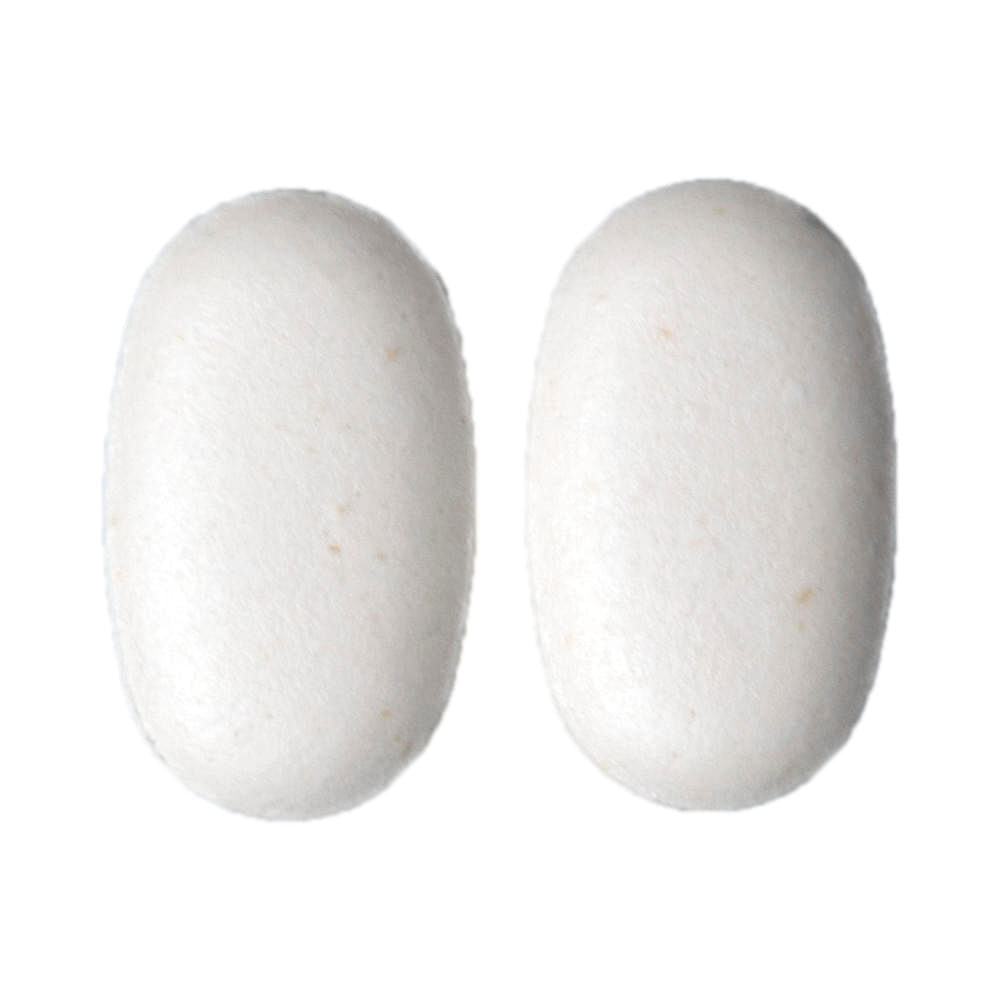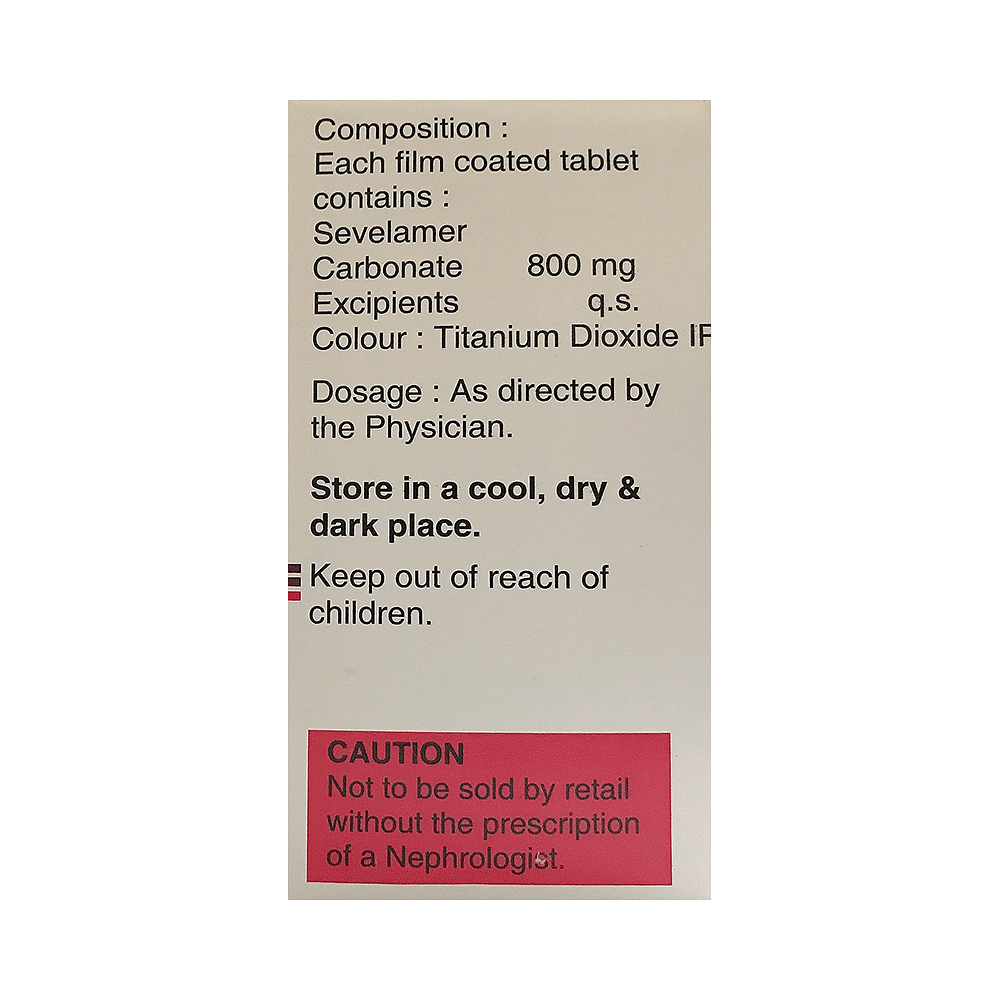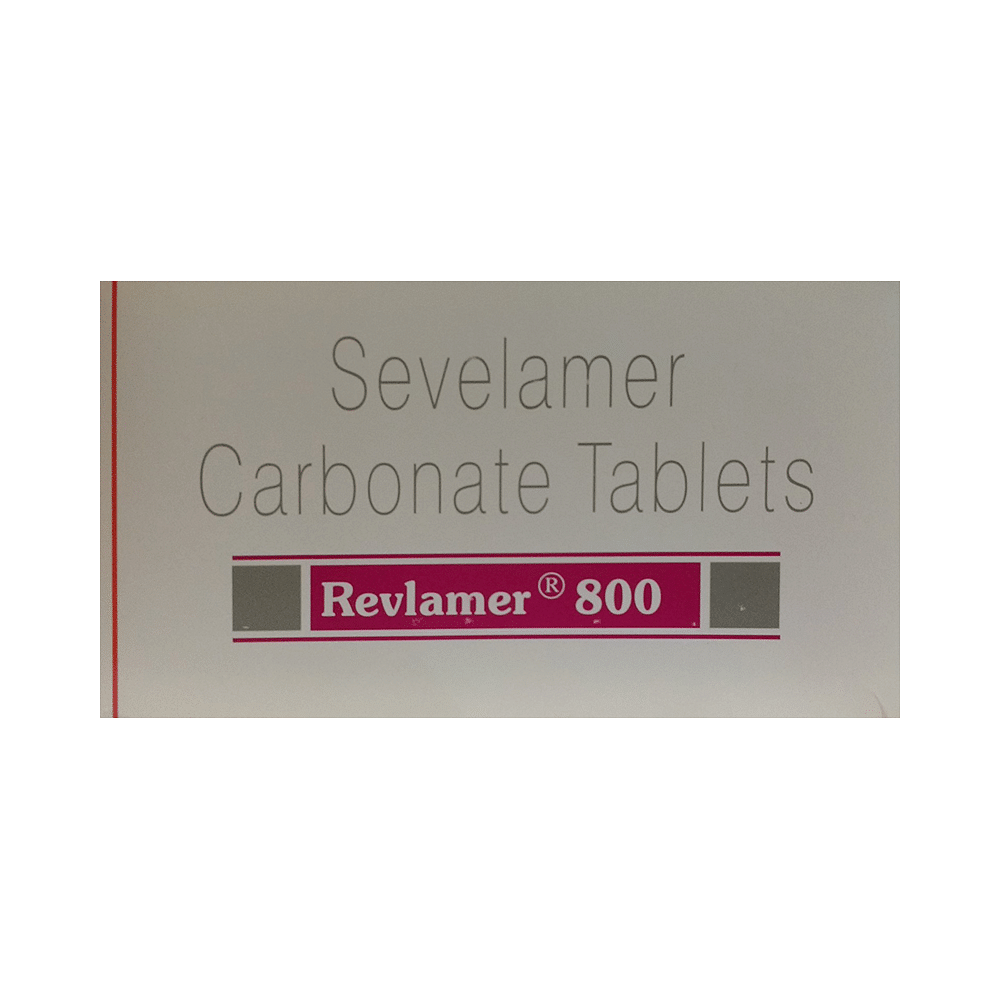
Sevlam-CP 800mg Tablet
Manufacturer
Rencord Life Sciences Pvt Ltd
Salt Composition
Sevelamer (800mg)
Key Information
Short Description
Sevlam-CP 800mg Tablet is used to treat increased phosphate levels in the blood.
Dosage Form
Tablet
Introduction
Sevlam-CP 800mg Tablet is used in patients who are on dialysis due to severe kidney disease. It inhibits the absorption of phosphate from the intestine and lowers the phosphate levels in the blood.
Directions for Use
Take this medicine in the dose and duration as advised by your doctor. Swallow it as a whole. Do not chew, crush or break it. Sevlam-CP 800mg Tablet is to be taken with food.
How it works
Sevlam-CP 800mg Tablet inhibits the absorption of phosphate from the intestine and lower the phosphate levels in the blood.
Quick Tips
Sevlam-CP 800mg Tablet is used to control blood phosphate level in patients that are on dialysis treatment. Must take it with food and stick to the diet prescribed by your doctor. You may develop low levels of calcium, folic acid, and vitamins A, D, E, and K in your blood. Your doctor may prescribe supplements if necessary. Avoid taking any other medicine 1 hour before or 3 hours after taking Sevlam-CP 800mg Tablet. Inform your doctor if you have nausea, vomiting, constipation, pain in the abdomen, or if you have undergone any major stomach surgery.
Related Medicines

Acutrol C-800 Tablet

Phoscut 800 Tablet

Sevcar 800 Tablet

Velacar 800mg Tablet

Revlamer 800 Tablet

Elamer 800mg Tablet

Sevcon 800 Tablet

Sevlogen 800mg Tablet

Sevecar 800mg Tablet

Sevenox 800mg Tablet
Frequently asked questions
Is Sevlam-CP 800mg Tablet taken with food?
Yes, Sevlam-CP 800mg Tablet can be taken with food. It is recommended to take 1-2 tablets (based on individual needs) three times daily. Taking it with meals is advised as Sevlam-CP 800mg Tablet works by binding to phosphate from food in the digestive tract.
Can Sevlam-CP 800mg Tablet be crushed?
No, you should not crush, chew, or break Sevlam-CP 800mg Tablet into pieces. You should swallow it as a whole with water.
Why is it important for me to take Sevlam-CP 800mg Tablet?
It is important to take Sevlam-CP 800mg Tablet as patients undergoing dialysis cannot control the phosphate levels in their blood, especially after a meal. When the phosphate level in blood exceeds the normal range, it may cause problems such as itchy skin, red eyes, high blood pressure, bone pain, and also increase the risk of fractures. These increased serum phosphate levels are reduced by Sevlam-CP 800mg Tablet as it binds phosphate from food in the digestive tract.
Does Sevlam-CP 800mg Tablet cause constipation?
A common side effect of Sevlam-CP 800mg Tablet is constipation, though it does not occur in everyone. Other common side effects of the stomach and intestine include diarrhea, indigestion, flatulence, and pain in the abdomen. If these side effects become severe or are bothersome, consult your doctor immediately.
Who should not take Sevlam-CP 800mg Tablet?
Patients who are allergic to Sevlam-CP 800mg Tablet and those with low phosphate levels in the blood should avoid taking it. Additionally, patients having intestinal obstruction should also avoid using Sevlam-CP 800mg Tablet.
Can I take ciprofloxacin while I am taking Sevlam-CP 800mg Tablet?
Ciprofloxacin may interfere with the working of Sevlam-CP 800mg Tablet, and therefore should not be taken at the same time. However, if taken together, a gap of at least two hours before or six hours after taking Sevlam-CP 800mg Tablet should be maintained.
How long do I need to take Sevlam-CP 800mg Tablet?
Continue taking Sevlam-CP 800mg Tablet as recommended by your doctor. Sevlam-CP 800mg Tablet lowers your dietary phosphate levels but does not cure your disease. Therefore, you may have to take it lifelong, as stopping Sevlam-CP 800mg Tablet may increase your phosphate levels.
Do I need to have any tests while taking Sevlam-CP 800mg Tablet?
Regular monitoring of serum phosphate levels is necessary while taking Sevlam-CP 800mg Tablet. Additionally, the use of Sevlam-CP 800mg Tablet may decrease the levels of vitamin D, A, E, K, and folic acid, necessitating their regular monitoring during treatment.


